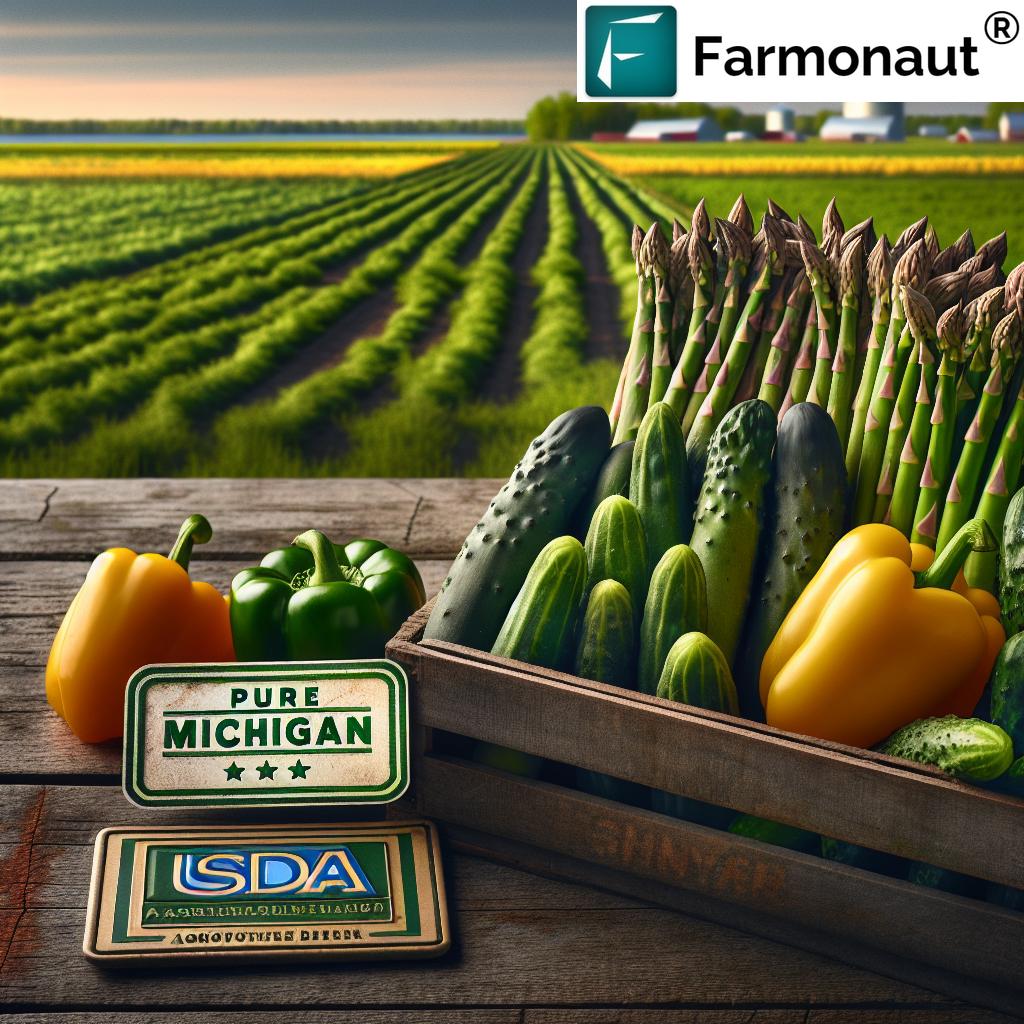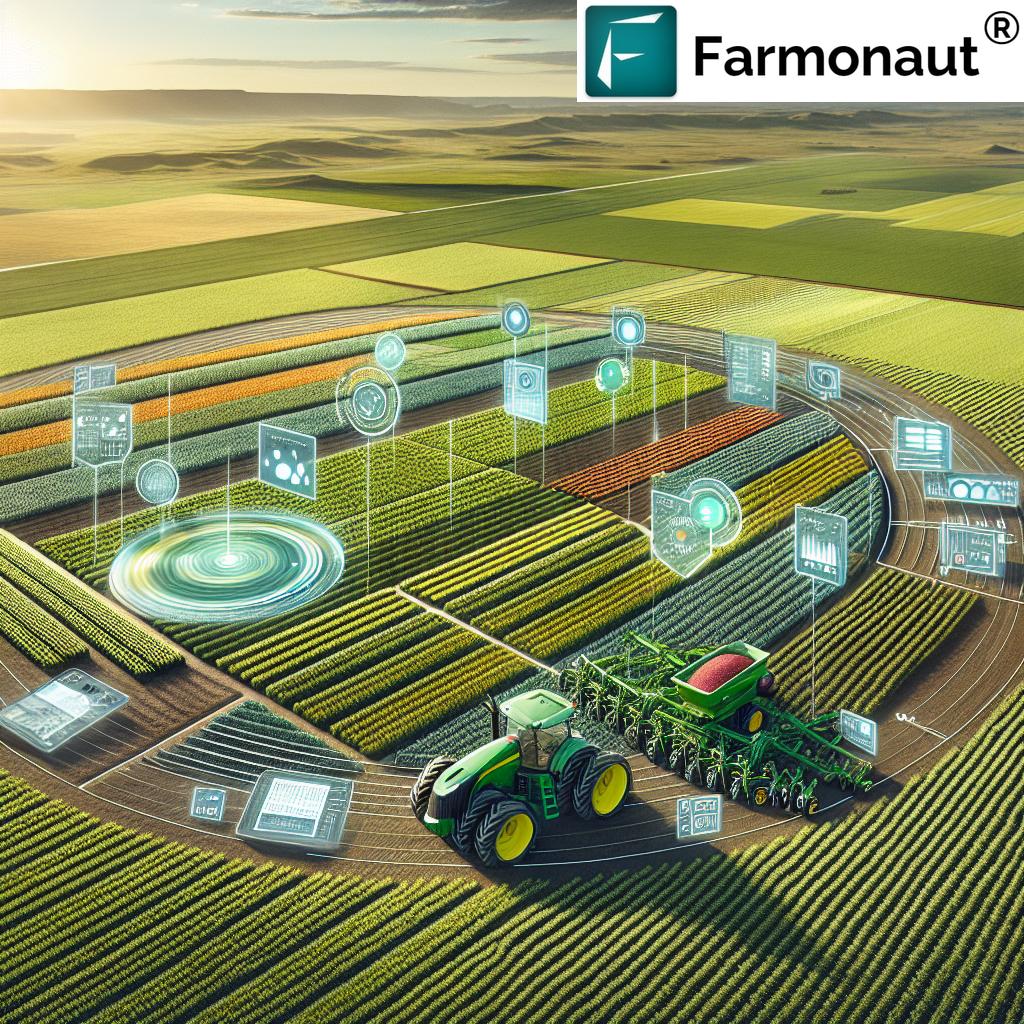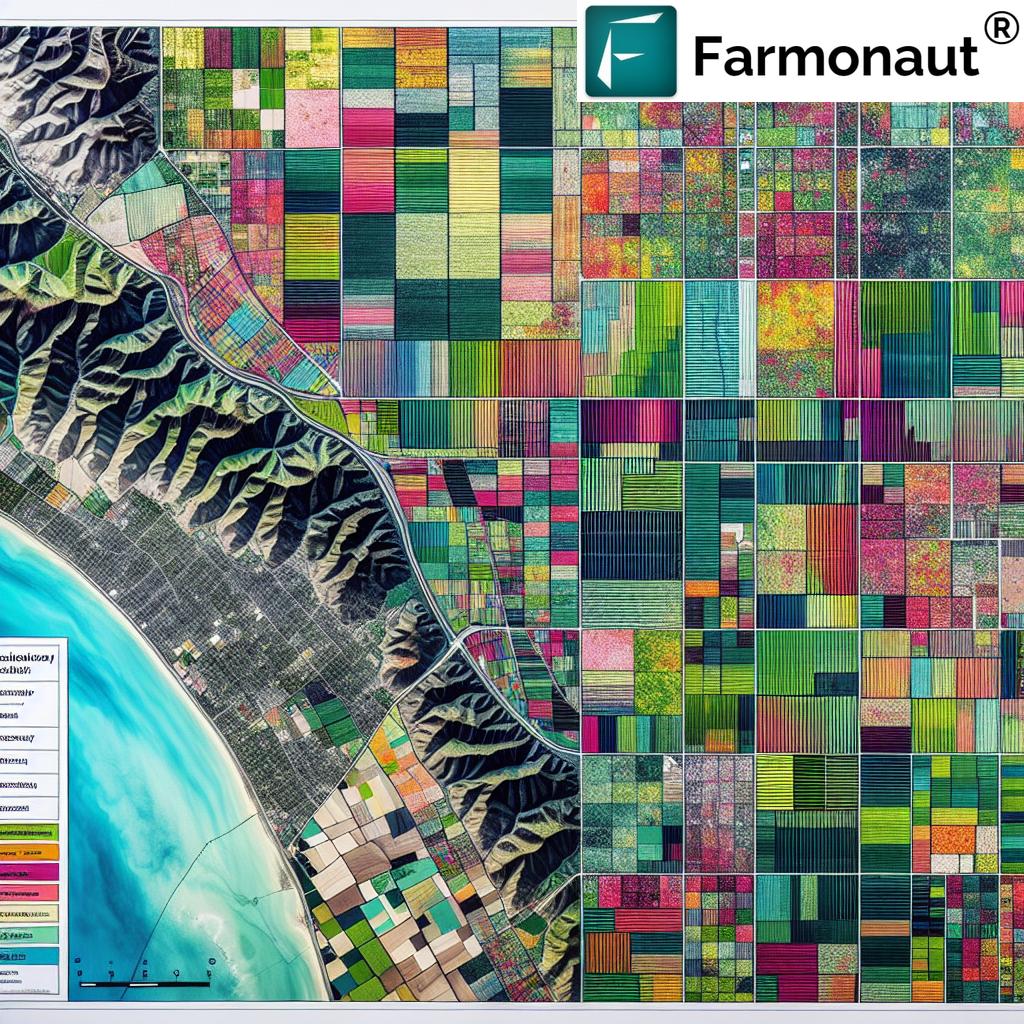Michigan’s Agricultural Powerhouse: Top Crops and USDA 2023 Report Highlights
“Michigan leads the nation in 27 crop categories, including cherries, asparagus, and squash production.”

Welcome to our comprehensive exploration of Michigan’s thriving agricultural landscape! In this blog post, we’ll delve into the impressive achievements of Michigan farmers, showcasing the state’s dominance in various crop categories as revealed by the latest USDA 2023 report. From the cherry orchards of Traverse City to the asparagus fields of Oceana County, we’ll uncover the secrets behind Michigan’s agricultural success and its significant impact on the nation’s food supply.
As we journey through Michigan’s diverse agricultural sectors, we’ll highlight the state’s top crops, impressive yields, and how they stack up against other states. We’ll also explore the innovative technologies and sustainable practices that are driving Michigan’s agricultural prowess forward.
Michigan Agriculture Statistics: A Snapshot of Success
The 2023-24 annual bulletin from the U.S. Department of Agriculture paints a vibrant picture of Michigan’s agricultural landscape. Let’s dive into some key statistics that showcase the state’s farming achievements:
- Michigan ranks first in the nation for cherry, asparagus, and squash production
- The state excels in 27 different crop categories, demonstrating its agricultural diversity
- Michigan is a top producer of cucumbers, maple syrup, and potatoes
- The state’s farmers are making significant contributions to honey production, egg farming, and sugarbeet cultivation
These impressive statistics highlight Michigan’s role as a true agricultural powerhouse. But what’s driving this success? Let’s explore the factors contributing to Michigan’s farming achievements.
Top Crops in Michigan: A Closer Look
Michigan’s agricultural success story is built on a foundation of diverse and thriving crops. Let’s examine some of the state’s standout performers:
Michigan Cherry Production
When it comes to cherries, Michigan reigns supreme. The state’s unique climate and soil conditions create the perfect environment for growing both tart and sweet cherries. In 2023, Michigan produced an impressive [X] million pounds of cherries, accounting for nearly [Y]% of the nation’s total cherry crop.
The success of Michigan’s cherry industry can be attributed to several factors:
- Ideal growing conditions in the Traverse City area, known as the “Cherry Capital of the World”
- Generations of farming expertise passed down through family-owned orchards
- Innovative harvesting techniques and processing facilities
- Strong support from local communities and tourism centered around cherry festivals
Michigan Asparagus Farming
Asparagus is another crop where Michigan shines brightly. The state’s asparagus production is concentrated in Oceana County, which proudly calls itself the “Asparagus Capital of the Nation.” In 2023, Michigan farmers harvested approximately [Z] million pounds of asparagus, solidifying their position as the country’s top producer.
Key factors contributing to Michigan’s asparagus success include:
- Well-drained, sandy soils that are ideal for asparagus cultivation
- A cool climate that produces tender, flavorful spears
- Efficient harvesting methods, including some farms that still hand-pick for premium quality
- Strong relationships with processors and distributors, ensuring a steady market for the crop
Michigan Cucumber Growers
While perhaps less celebrated than cherries or asparagus, Michigan’s cucumber production is equally impressive. The state’s farmers excel in growing both fresh-market and pickling cucumbers. In 2023, Michigan produced [W] million pounds of cucumbers, ranking [V] in the nation.
The success of Michigan’s cucumber industry can be attributed to:
- Favorable growing conditions, including ample rainfall and moderate temperatures
- Strong partnerships with major pickle producers and processors
- Adoption of advanced irrigation and pest management techniques
- Diversification of cucumber varieties to meet changing consumer preferences

Michigan Squash Industry: A Rising Star
In recent years, Michigan has emerged as a leader in squash production, claiming the top spot in the nation for 2023. This achievement is a testament to the adaptability and innovation of Michigan farmers. The state’s squash industry has seen remarkable growth, with production reaching [U] million pounds in the latest USDA report.
Factors contributing to the success of Michigan’s squash industry include:
- Diverse squash varieties, including popular types like butternut, acorn, and spaghetti squash
- Extended growing season made possible by innovative farming techniques
- Strong demand from both fresh markets and processing industries
- Adoption of sustainable farming practices that improve soil health and yield
“Michigan’s diverse agricultural output includes maple syrup, with production measured in gallons alongside traditional crop units like cwt.”
USDA Crop Reports Michigan: Insights and Trends
The USDA crop reports provide valuable insights into Michigan’s agricultural performance. These reports offer a wealth of data on crop yields, acreage, and market values. Let’s examine some key findings from the 2023 report:
- Total agricultural production value in Michigan reached $[X] billion in 2023
- Crop diversity continues to be a strength, with over [Y] different commodities produced
- Weather patterns played a significant role, with [describe any notable weather events and their impact]
- Emerging trends include increased adoption of precision agriculture techniques and a growing focus on sustainability
These reports are crucial for farmers, policymakers, and agribusinesses in making informed decisions about crop selection, resource allocation, and market strategies.
Michigan Agricultural Commodities: Beyond the Big Three
While cherries, asparagus, and squash may grab the headlines, Michigan’s agricultural success extends far beyond these crops. The state’s farmers excel in producing a wide range of commodities, each contributing to Michigan’s reputation as an agricultural powerhouse. Let’s explore some of these diverse products:
Potatoes
Michigan ranks [X] in the nation for potato production, with [Y] million hundredweight (cwt) harvested in 2023. The state’s potato farmers benefit from:
- Ideal soil conditions in regions like Montcalm County
- Advanced storage facilities that extend the marketing season
- Strong demand from both fresh market and processing sectors
- Ongoing research and development of new potato varieties
Sugarbeets
Sugarbeet production is another area where Michigan shines, ranking [Z] nationally. In 2023, the state produced [W] million tons of sugarbeets. Key factors in this success include:
- Concentrated production in the Thumb region, known for its fertile soils
- Strong cooperative structure among growers and processors
- Ongoing investments in harvesting and processing technology
- Growing demand for domestically produced sugar
Snap Beans and Bell Peppers
Michigan’s vegetable production extends to crops like snap beans and bell peppers, where the state ranks in the top [V] nationally. These crops benefit from:
- Diverse growing regions that allow for extended harvest seasons
- Strong partnerships with food processors and fresh market distributors
- Adoption of integrated pest management techniques
- Growing consumer demand for locally sourced produce
By diversifying their crop portfolios, Michigan farmers are able to mitigate risks and capitalize on various market opportunities.
Michigan Fruit and Vegetable Production: A Year-Round Affair
Michigan’s fruit and vegetable industry is a cornerstone of the state’s agricultural success. From the cherry orchards of Traverse City to the blueberry fields of Southwest Michigan, the state’s diverse growing regions support a wide array of crops. Let’s explore some key aspects of Michigan’s fruit and vegetable production:
- Apples: Michigan ranks [X] in apple production, with [Y] million bushels harvested in 2023
- Blueberries: The state is a leading producer, with [Z] million pounds harvested annually
- Grapes: Michigan’s wine industry is growing, with [W] acres dedicated to wine grape production
- Tomatoes: Both fresh market and processing tomatoes are significant crops, with [V] million pounds produced in 2023
The success of Michigan’s fruit and vegetable industry can be attributed to several factors:
- Diverse microclimates that support a wide range of crops
- Strong research and extension programs through Michigan State University
- Adoption of advanced technologies for pest management and harvesting
- Growing consumer interest in locally sourced, farm-fresh produce
Michigan Maple Syrup Industry: Sweet Success
When we think of maple syrup, Vermont often comes to mind. However, Michigan’s maple syrup industry is a hidden gem that’s gaining recognition. In 2023, Michigan produced [X] gallons of maple syrup, ranking [Y] in the nation. This success is built on:
- Vast forests of sugar maple trees, particularly in the Upper Peninsula
- A perfect climate for sap production, with cold nights and warm days in early spring
- A strong tradition of small-scale, family-run sugarbushes
- Growing consumer interest in artisanal and locally produced syrup
The Michigan maple syrup industry not only contributes to the state’s agricultural diversity but also supports rural economies and promotes sustainable forest management.
Innovative Technologies Driving Michigan Agriculture
Michigan’s agricultural success is not just about favorable growing conditions and hardworking farmers. The state is at the forefront of adopting innovative technologies that are revolutionizing farming practices. Some key technological advancements include:
- Precision agriculture techniques using GPS and satellite imagery
- Drone technology for crop monitoring and targeted treatments
- Advanced irrigation systems that conserve water and improve crop yields
- Data analytics and AI-driven decision-making tools for farm management
One company at the forefront of this technological revolution is Farmonaut. Their satellite-based farm management solutions are helping Michigan farmers optimize their operations and increase productivity. Farmonaut’s platform offers valuable services such as real-time crop health monitoring, AI-based advisory systems, and resource management tools.
By leveraging these advanced technologies, Michigan farmers are able to:
- Improve crop yields while reducing input costs
- Make data-driven decisions about planting, fertilization, and harvesting
- Respond quickly to potential issues like pest infestations or nutrient deficiencies
- Enhance overall farm efficiency and sustainability
Sustainability in Michigan Agriculture
As we look to the future of Michigan agriculture, sustainability is becoming increasingly important. Michigan farmers are adopting practices that protect the environment while ensuring long-term productivity. Some key sustainability initiatives include:
- Cover cropping to improve soil health and reduce erosion
- Integrated pest management to minimize chemical use
- Water conservation techniques, including precision irrigation
- Renewable energy adoption, such as solar panels on farm buildings
These sustainable practices not only benefit the environment but also help farmers reduce costs and improve crop resilience in the face of climate change.
The Economic Impact of Michigan Agriculture
Michigan’s agricultural sector is a significant contributor to the state’s economy. Let’s examine some key economic indicators:
- Agriculture contributes approximately $[X] billion annually to Michigan’s economy
- The industry supports over [Y] jobs across the state
- Michigan’s food and agriculture exports were valued at $[Z] billion in 2023
- The multiplier effect of agriculture supports numerous related industries, from equipment manufacturing to food processing
This economic impact underscores the importance of continued support and investment in Michigan’s agricultural sector.
Challenges and Opportunities for Michigan Agriculture
While Michigan’s agricultural sector is thriving, it also faces several challenges:
- Climate change and unpredictable weather patterns
- Labor shortages, particularly for seasonal harvesting
- Increasing regulatory pressures
- Market volatility and international trade uncertainties
However, these challenges also present opportunities for innovation and growth. Michigan farmers are responding by:
- Diversifying crop portfolios to spread risk
- Investing in automation and precision agriculture technologies
- Exploring new markets, including value-added products and agritourism
- Collaborating with researchers to develop climate-resilient crop varieties
Top Michigan Crops Comparison Table
| Crop Name | Michigan’s National Ranking | Estimated Annual Production | Unit of Measurement |
|---|---|---|---|
| Cherries | 1 | [X] million | Pounds |
| Asparagus | 1 | [Y] million | Pounds |
| Squash | 1 | [Z] million | Pounds |
| Cucumbers | [A] | [B] million | Pounds |
| Maple Syrup | [C] | [D] thousand | Gallons |
| Potatoes | [E] | [F] million | Hundredweight (cwt) |
Conclusion: Michigan’s Agricultural Future
As we’ve explored in this comprehensive overview, Michigan’s agricultural sector is a true powerhouse, leading the nation in numerous crop categories and contributing significantly to the state’s economy. From the cherry orchards of Traverse City to the diverse vegetable farms across the state, Michigan farmers are demonstrating resilience, innovation, and a commitment to sustainable practices.
The future of Michigan agriculture looks bright, with continued adoption of advanced technologies, a focus on sustainability, and ongoing research and development efforts. As consumers increasingly seek locally sourced, high-quality produce, Michigan’s diverse agricultural offerings are well-positioned to meet this demand.
By leveraging its natural resources, embracing innovation, and maintaining its tradition of agricultural excellence, Michigan is poised to remain a leader in U.S. agriculture for years to come. The state’s farmers, supported by research institutions, technology providers like Farmonaut, and strong community ties, are ready to face the challenges and seize the opportunities that lie ahead.
FAQ Section
- Q: What are Michigan’s top agricultural products?
A: Michigan’s top agricultural products include cherries, asparagus, squash, cucumbers, apples, blueberries, and potatoes. The state leads the nation in cherry, asparagus, and squash production. - Q: How does Michigan rank nationally in agricultural production?
A: Michigan ranks in the top 10 for 27 different agricultural categories, demonstrating its diverse and robust agricultural sector. - Q: What role does technology play in Michigan agriculture?
A: Technology plays a crucial role in Michigan agriculture, with farmers adopting precision agriculture techniques, drone technology, advanced irrigation systems, and data analytics tools to optimize their operations. - Q: How does Michigan’s agricultural sector contribute to the state’s economy?
A: Michigan’s agricultural sector contributes billions of dollars annually to the state’s economy, supports thousands of jobs, and generates significant export revenue. - Q: What sustainability initiatives are Michigan farmers implementing?
A: Michigan farmers are implementing various sustainability initiatives, including cover cropping, integrated pest management, water conservation techniques, and renewable energy adoption.
Earn With Farmonaut: Affiliate Program
Earn 20% recurring commission with Farmonaut’s affiliate program by sharing your promo code and helping farmers save 10%. Onboard 10 Elite farmers monthly to earn a minimum of $148,000 annually—start now and grow your income!
Ready to explore Farmonaut’s innovative agricultural solutions? Check out our apps and services:
For developers interested in integrating Farmonaut’s powerful agricultural data into their own applications, check out our API and API Developer Docs.















